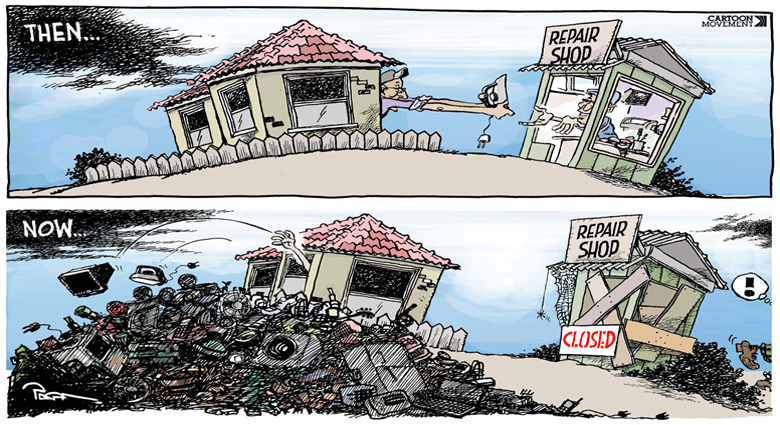How does your company acquire customers?
Sales, marketing, and business development teams are provided with the internal resources needed to succeed. Companies use traditional methods, such as radio, television, and print advertising, to increase their chances of converting new customers.
"Create meaning over delivering money."
But none of the aforementioned tactics are where the greatest opportunity lies. To grow our businesses, we must look internally before we try to expand externally.
As a management consultant and keynote speaker, I’m trusted by companies of all sizes to look into their strategies and find new opportunities. Whether it’s a small business, or a billion-dollar brand with international recognition, the story is often the same: they want to grow their business or increase their profitability.
After looking at their yearly plans, I tend to see the same thing - traditional programs are given a lion’s share of the company’s operating budget, which produce good results that achieve quarter-over-quarter success. However, living quarter-over-quarter isn’t an advantageous position; the greatest companies in the world build programs to secure their livelihood for the next ten years, not the next ten weeks.
When I work with a company that is trying to grow their business, I NEVER start with customer acquisition or loyalty strategies. Instead, I respectfully challenge the company to build a stronger relationship with their employees before trying to influence something that is external to their business.
But how can companies of all sizes achieve this? There are three essential ways for any company to increase employee engagement.
Efficiently Survey Your Employees
The world’s greatest athletes ask for feedback from their coaches and mentors to better themselves and make necessary adjustments. The same approach can be taken with your employees with great results. Despite the importance of asking employees for feedback, a lot of companies don’t actually gather it. A company called Critical Metrics found that around 90% of companies believe that gathering feedback from employees is important, yet only 30% have the processes in place to actually gather this feedback.
I highly recommend surveying employees to understand what makes them tick (and what ticks them off), so that you can embrace their feedback to drive change in your organization. The word ‘survey’ can have a negative connotation for some; we picture a long, outdated, and inefficient survey that takes employees forever to complete. In this day and age you can’t survey employees like this if you want to truly understand their motivations and challenges.
Whoever is responsible for gathering the feedback must take the next steps, which include:
• Finding trends within the data and deciding what you are going to do with it
• Quickly delivering the results back to the entire organization, with full transparency. Don’t let this data live within the C-Suite or management team
• Surveying employees more than once a year. You must keep your finger on the pulse of your employee culture at all times.
Create Meaning Over Delivering Money
While it would be naive to assume that employees don’t want a competitive salary or monetary incentives, if you’re hiring correctly your employees will sacrifice a higher salary for a meaningful relationship with their company or boss. The idea that employee engagement is determined by financial incentives has long been disproven. A 2012 Aon Hewitt study, for example, found that the top engagement drivers for employees are career opportunities, recognition, and organization reputation.
When I got my start at 1-800-GOT-JUNK? I worked within the call centre. I was earning a fair wage, but nothing worth glamourizing. Why did I enjoy my time with the company? For me, I really liked the culture of the company and the opportunities for growth.
Companies allocate incentive budgets and bonus programs for their sales teams to achieve greater results, which has been proven to work, but these incentives don’t tend to resonate with employees for very long. Why? The incentive they receive, be it cash, iPads, or vacations, can be spent very quickly, which erases the memory of their achievement. To genuinely create stronger relationships with our employees, and achieve greater business results, we must pull at their heart strings and make them emotional.
Whether you are the CEO, a sales manager, or customer service team lead, I recommend “hacking” your leadership style to find cost-effective ways to inspire your team. My recommended strategy is to block off 30 minutes a week on your calendar and set it as a recurring, non-negotiable meeting. For example, you may choose every Tuesday from 11:30am to 12:00pm. During this time you only have one responsibility: to identify someone on your team (or within another department) and acknowledge them for a personal achievement or for helping you achieve an outcome. This conversation can be done over coffee or lunch, sticking with the theme of being cost-effective. While hosting this conversation, there are a few rules that you should apply to make it a success for both parties:
• Keep the “business talk” to a limit
• Get to know them as an individual and not as an employee
• Using Simon Sinek as inspiration, understand their “why”
• Close the loop. Ask them outright, “Can I help you?” and deliver on any promises you make
If you hire correctly, this is what will inspire your salespeople to sell more, your PR professionals to pitch more effectively, your developers to code more efficiently, or your customer service staff to deliver better service.
"Understand that employee relationships are a long-term investment."
Understand that Employee Relationships are a Long-Term Investment
Similar to our personal relationships, building memorable relationships with our employees takes time, but will ultimately create greater business results. After all, lifelong relationships with our friends or family aren’t cemented by successfully dropping someone off at the airport one time or helping them move. Rather, it takes many instances of goodwill to build strong relationships.
Too many organizations believe employee engagement is a campaign. For it to be truly successful it must be part of the DNA of the business. In addition, it takes a champion within the organization to advocate for the strategy and rally the organization by continuously talking about the subject, not just creating an initiative that happens once.
When thinking about how your company is going to sell more, market better, or deliver better service, consider what’s happening inside your organization before you look externally. It’s not a coincidence that companies like Airbnb, Starbucks, or ZenPayroll are achieving massive success. They are successful because they hold their employee engagement in high regard, becoming admired brands in the process.





.png)



What Did You Think?